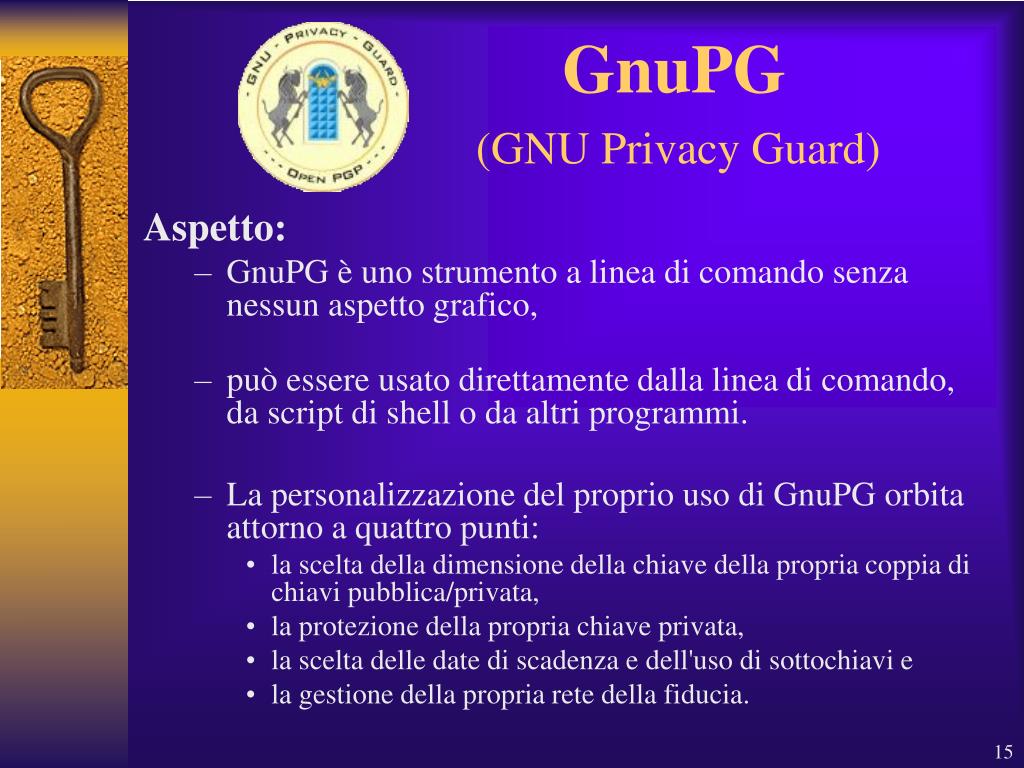

- #GNU PRIVACY GUARD WINDOWS HOW TO#
- #GNU PRIVACY GUARD WINDOWS VERIFICATION#
- #GNU PRIVACY GUARD WINDOWS SOFTWARE#
Ironically, perhaps, operating systems, products and sysadmin teams that are slow off the mark when it comes to updates may very well have missed out on this bug entirely. To your astonishment, it now says Go directly to Jail – Do not pass Go, do not collect $200, and that’s what happens instead. Imagine that you pick up the card and are happily preparing to make the specified move, but that when you show the card to your fellow players, it has inexplicably been swapped out by some sleight-of-hand. Think of the function pointer like a CHANCE card in a game of Monopoly that instructs you to Advance to GO, collect $200.
#GNU PRIVACY GUARD WINDOWS HOW TO#
With sufficient trial and error, however, attackers may be able to figure out how to alter the flow of execution in the buggy program so that instead of crashing uncontrollably, the code gets tricked into running machine code instructions provided by the attackers themselves.īooby-trapped data that diverts a buggy program into treating some of that data as code to be executed is known as shellcode, a jargon word that means “malicious program code that’s infiltrated under the disguise of being harmless data”.
#GNU PRIVACY GUARD WINDOWS SOFTWARE#
In C programming terminology, function pointer is a jargon term for “a stored memory address that tells the software where to go next”.Ī bug that can be abused to overflow a designated memory buffer and thereby modify a nearby function pointer will almost inevitably affect the future behaviour of the running program and divert its execution, typically causing it to crash. Just showing that he could provoke a crash was enough to prove his point, and Ormandy was able to do this via the gpg program, which relies on the libgcrypt library for its cryptographic functions. I believe this is easily exploitable, the overflowed buffer is immediately adjacent to a function pointer that is immediately called after the overflow.
#GNU PRIVACY GUARD WINDOWS VERIFICATION#
Just decrypting some data can overflow a heap buffer with attacker controlled data, no verification or signature is validated before the vulnerability occurs. There is a heap buffer overflow in libgcrypt due to an incorrect assumption in the block buffer management code. Ormandy didn’t come up with a working RCE proof-of-concept exploit for this bug, because he didn’t need to on this occasion. In other words, a program that used libgcrypt to decrypt and check the integrity of data submitted from outside the network – ironically, something you might do to see if you should trust the data in the first place – could be tricked into running an arbitrary fragment of malware code hidden away inside that data. In theory, this vulnerability could lead to what’s known as RCE, short for Remote code Execution, because the bug can be triggered simply by sending libgcrypt a block of booby-trapped data to decrypt. gpg features complete key management and all bells and whistles you can expect from a decent OpenPGP implementation. It is a tool to provide digital encryption and signing services using the OpenPGP standard. Gpg is the OpenPGP-only version of the GNU Privacy Guard (GnuPG). GnuPG is included and used for digital security in many Linux distributions: The libgcrypt library is an open-source toolkit that anyone can use, but it’s probably best known as the encryption library used by the GNU Privacy Guard team’s own widely deployed GnuPG software (that’s the package you are using when you run the command gpg or gpg2). Bug hunter Tavis Ormandy of Google’s Project Zero just discovered a dangerous bug in the GNU Privacy Guard team’s libgcrypt encryption software.


 0 kommentar(er)
0 kommentar(er)
